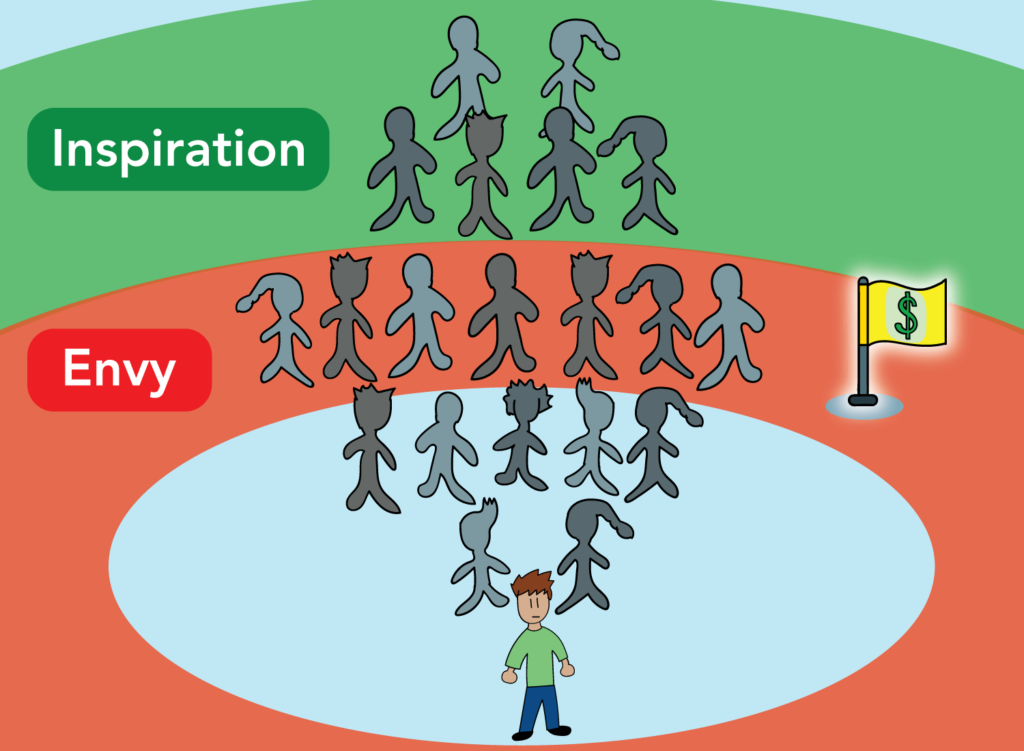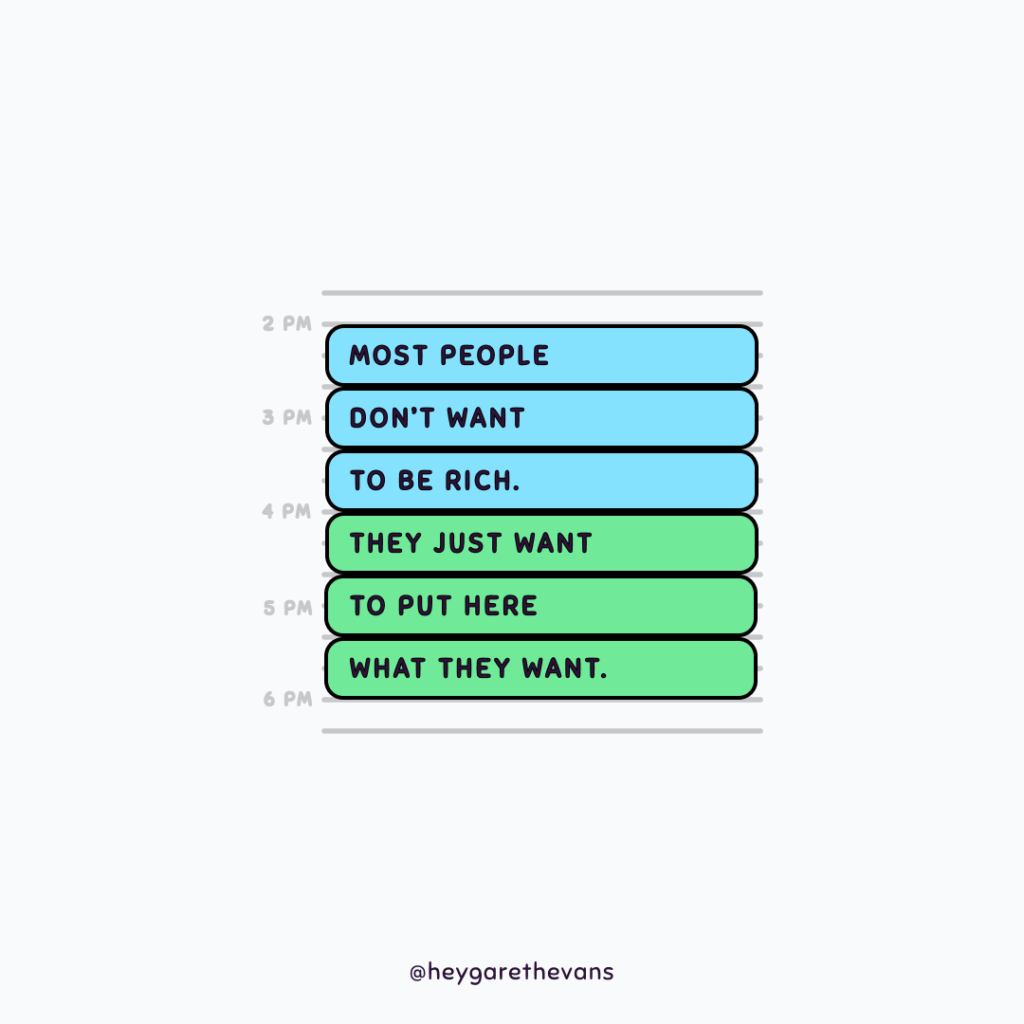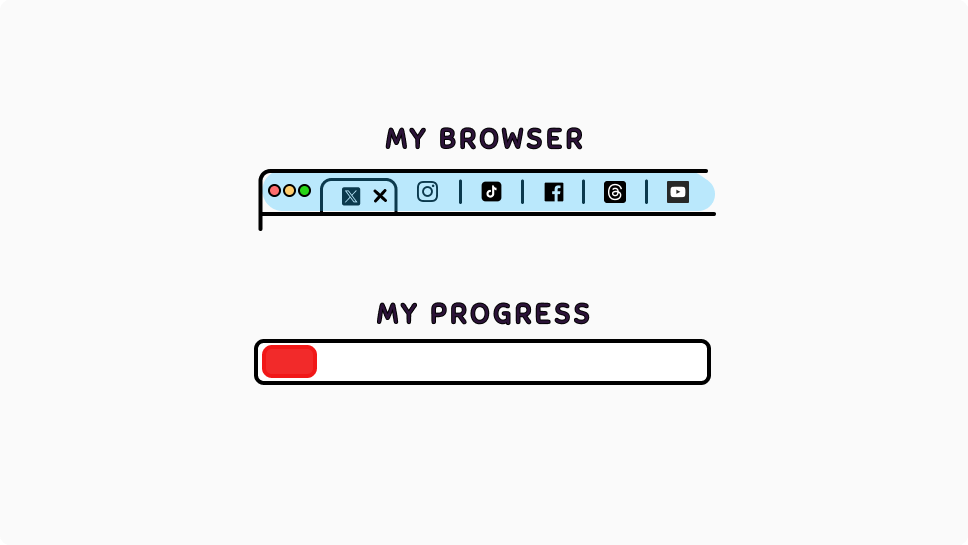One Friday in April 2016, during a particularly intense presidential race and with over thirty armed conflicts raging worldwide, around three million people found themselves captivated by a simple, yet strangely compelling event:
Two BuzzFeed reporters wrapping rubber bands around a watermelon.
Over forty-three minutes, the tension built up until, finally, the 686th rubber band caused the watermelon to explode.
The reporters celebrated. They ate some watermelon. And the earth continued its orbit around the sun.

The point of sharing this story isn’t to imply there’s anything wrong or shameful about spending your time watching a watermelon burst online. In fact, the whole thing feels like a relic from a simple, more innocent time.
But, the story does underscore a significant issue: distraction.
It’s probably safe to say that none of those three million viewers woke up that morning planning to spend part of their day watching a watermelon burst. Yet, many ended up feeling trapped in the moment, caught by something they didn’t intend to focus on.
And given that our experiences are the sum of everything we focus on. When we pay attention to something unimportant, we’re paying with our life.
The modern advice to combat this is to become ‘indistractible’ by learning how to focus better through meditation, using apps that promise to improve concentration, and wearing noise-canceling headphones. But, this is all a trap.
Aiming for total control over our attention denies a fundamental truth about human limitation: achieving complete sovereignty over our attention is likely impossible. And, if you ask me, pretty undesirable too.
If we had full control over our focus and attention, we’d step into the path of an oncoming bus, we’d never appreciate the beauty of the evening sunset, and never catch the eye of someone sitting across the room, missing out on those moments of serendipity that make life unexpectedly delightful and meaningful.
Neuroscientists call this ‘bottom-up’ or involuntary attention, which is crucial for our survival. But, having some control of our ‘top-down’ or voluntary attention can make the world of difference between a meaningful and a miserable life.
For example, Viktor Frankl, in his book Man’s Search for Meaning, maintained hope even in the dire circumstances of Auschwitz by focusing on his inner life – an aspect the guards couldn’t control. This ability to direct his attention inward allowed him to find meaning and maintain his humanity despite the horrors surrounding him.
On the other hand, a life filled with comfort and success can still feel empty if we can’t direct our attention toward what truly matters. To truly experience a moment, we must focus on it. If our minds are elsewhere, even the most wonderful experiences can pass us by without making an impact. A gourmet meal might as well be a microwave dinner if we’re not mentally present to enjoy it, and a friendship becomes hollow if we never invest our attention in it.
As the poet Mary Oliver wrote, “Attention is the beginning of devotion.” Distraction and care are incompatible. You can’t truly love a partner, dedicate yourself to a career, or savor a walk in the park without first focusing your attention on them.
So, let’s strive to be mindful of where we place our attention, because it shapes our reality and defines our lives.
🎬 Latest Video
POV: You’re a 29 Year Old Entrepreneur Building a Business
✍️ Article of the Week

Envy Is the Cancer of the Soul
The conditions that allow envy to thrive are being accentuated by technological progress, yet our norms have not updated to accommodate this reality. It should be just as acceptable to talk about envy as it is anxiety, especially because the former often feeds into the latter. Yet we keep our mouths shut in fear of being judged, and allow it to eat away at us over time.
🙌 Weekly Favourites


